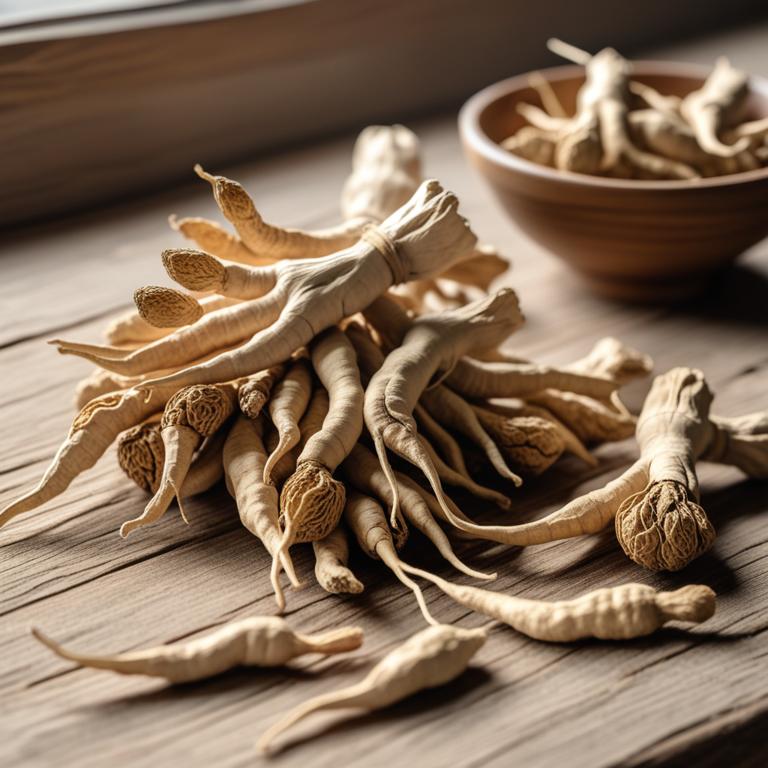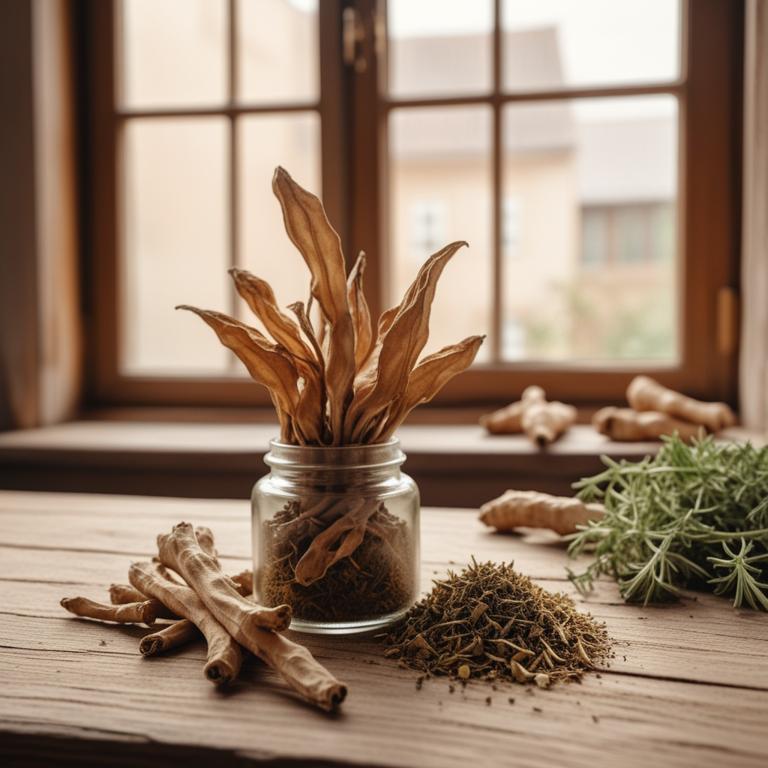Updated: Dec 1, 2024
Understanding Taste Changes: Causes, Medicinal Herbs, and Herbal Preparations

Taste changes can be a frustrating experience, affecting the way you enjoy your favorite foods and drinks.
It can make eating and cooking feel like a chore, and even impact your social life if you're unable to share meals with others. But what causes these changes?. Sometimes, it's a side effect of medication, or a sign of an underlying health issue like diabetes or kidney disease. Other times, it's a result of aging or even a change in your sense of smell. Fortunately, there are some herbal remedies that may help.
For example, ginger has natural anti-inflammatory properties that can help soothe the taste buds and reduce any discomfort. Licorice root is another herb that's often used to treat taste changes, as it has properties that can help restore the normal functioning of the taste buds. And then there's peppermint, which can help clear congestion and improve your sense of smell. To use these herbs, you can try making teas by steeping them in hot water. You can also add them to your cooking, or take them as supplements. Some people find it helpful to drink a ginger tea before meals to help stimulate their appetite, while others prefer to make a licorice root tea before bed to help them relax.
Whatever your preference, it's worth trying these herbal remedies to see if they can help you regain your sense of taste.
Table of Contents
- What are the underlying causes of taste changes?
- What are the benefits of using herbs for treating taste changes?
- What are the main herbal remedies for taste changes in medical practice?
- What herbal remedies are most commonly utilized to alleviate taste changes?
- If you have taste changes, which herbs are best avoided?
- FAQ
What are the underlying causes of taste changes?
The main causes of taste changes are various and can be quite diverse.
Some of the most common causes include HIV, which can damage the taste buds, making it difficult for people to experience the five basic tastes - sweet, sour, salty, bitter, and umami. People with diabetes often experience taste changes due to high blood sugar levels, which can damage the nerves responsible for transmitting taste signals to the brain.
Those with hypothyroidism, a condition where the thyroid gland doesn't produce enough hormones, may also experience taste changes, as this can affect the nerves and taste buds. Nutritional deficiencies, particularly a lack of zinc, vitamin B12, and iron, can also lead to taste changes, as these nutrients play a crucial role in maintaining healthy taste buds. Certain medications, such as antidepressants, antihistamines, and blood pressure medications, can alter the sense of taste by affecting the nerves and taste buds.
Lastly, smoking can damage the taste buds and reduce the sense of taste, as it contains over 7,000 chemicals that can harm the mouth and throat.
What are the benefits of using herbs for treating taste changes?
Using herbs for taste changes can be really helpful.
For one, they can add flavor to food without adding salt, sugar, or other unhealthy ingredients. This is especially good for people who have to watch their diet for health reasons.
Some herbs can also help to balance out the flavors in a dish, making it taste more natural and less processed. For example, some herbs have a strong, warm taste that can add depth to soups and stews, while others have a bright, fresh taste that can add zing to salads and vegetables. Additionally, herbs can be a great way to add flavor to food without overpowering it, which is important if you're trying to cook for people with different tastes.
Some herbs can even be used to help bring out the flavors in other ingredients, like garlic or ginger.
What are the main herbal remedies for taste changes in medical practice?

Herbs can greatly impact the way food tastes.
Zingiber officinale, also known as ginger, adds a spicy, warm flavor that enhances many dishes. It's often used in Asian and Indian cuisine to add depth to curries and stir-fries. Curcuma longa, or turmeric, has a slightly bitter, earthy taste that pairs well with the spiciness of ginger.
Cinnamomum verum, also known as cinnamon, has a sweet, warm flavor that's commonly used in baked goods and desserts. However, when used in savory dishes, it can add a rich, complex taste. Glycyrrhiza glabra, or licorice root, has a sweet, slightly bitter taste that's often used to balance out the flavors in dishes. Mentha x piperita, or peppermint, has a refreshing, cooling flavor that's great for desserts and drinks.
These herbs can be combined in various ways to create unique flavor profiles that can enhance the taste of food.
What herbal remedies are most commonly utilized to alleviate taste changes?

Herbal preparations can be a great way to manage taste changes.
When your sense of taste is off, it's not just about enjoying food anymore - it's about getting the nutrients you need. A decoction is a strong liquid made by boiling herbs in water, which can be a good option when you're feeling weak or don't have much appetite.
Capsules are another choice, where herbs are dried and put into a small container that you can swallow easily. If you're not a big fan of strong tastes, a tea or infusion might be a better fit - these are made by steeping herbs in hot water, and can be more gentle on the taste buds. Some people also find tinctures helpful, which are liquids made by soaking herbs in a solvent like alcohol or glycerin - they can be added to food or drinks for a subtle flavor.
Each of these preparations has its own benefits, and it's worth trying a few to see what works best for you.
Additional Resources:
If you have taste changes, which herbs are best avoided?
If you experience changes in your sense of taste, it's best to be cautious with certain herbs.
For instance, Piper nigrum, also known as black pepper, can be quite sharp on the taste buds, and if your taste is already off, it might make things worse. It contains a compound called piperine, which is known to enhance flavor, but if your taste is sensitive, it could be overwhelming. Similarly, herbs like Rosmarinus officinalis, or rosemary, and Thymus vulgaris, or thyme, are known for their strong, pungent flavors, which might not be suitable for people with taste changes.
Their intense flavors could irritate your taste buds further, making it harder to enjoy food. Other herbs like Origanum majorana, or sweet marjoram, and Foeniculum vulgare, or fennel, might also be too strong for people with altered taste. They have distinctive, slightly bitter or anise-like flavors that could clash with your sensitive taste buds.
When dealing with changes in your sense of taste, it's better to stick with milder herbs and flavors to ease your digestive system and avoid discomfort.
FAQ
Are there any specific herbs that can prevent taste changes?
Some herbs like ginger and turmeric have anti-inflammatory properties that may help maintain taste buds' sensitivity.
They could also aid in reducing swelling in the mouth and throat, which can cause taste changes.
Some research suggests that these herbs may be beneficial in preserving taste, but more studies are needed to confirm their effects.
Is it safe to use herbal remedies for taste changes during pregnancy?
Some herbal remedies claim to help with taste changes during pregnancy.
However, the safety of using these remedies is not well understood. The FDA hasn't approved many of them for pregnancy, and some may interact with other medicines.
It's best to approach with caution and talk to your healthcare provider about any concerns.
Are there any herbs that can reduce the frequency of taste changes?
Research suggests that certain herbs, like ginger and peppermint, may help reduce the frequency of taste changes.
Ginger has anti-inflammatory properties, which can soothe the taste buds, while peppermint can calm the digestive system, potentially reducing taste fluctuations.
Some people find that consuming these herbs regularly can make a difference.
Related Articles
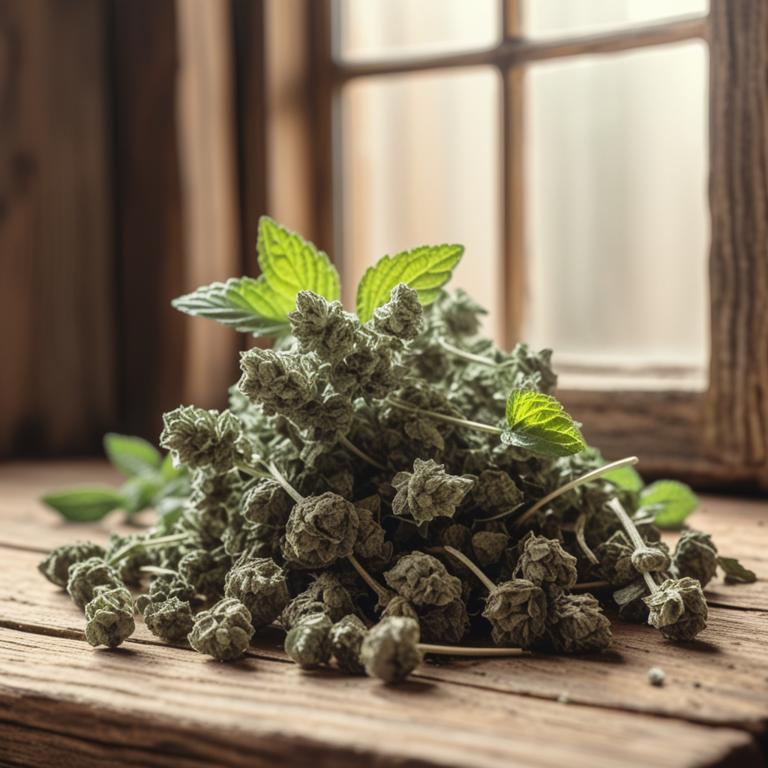
Understanding Taste Changes: Causes, Medicinal Herbs, and Herbal Preparations

The Causes of Grief: Finding Relief with Medicinal Herbs
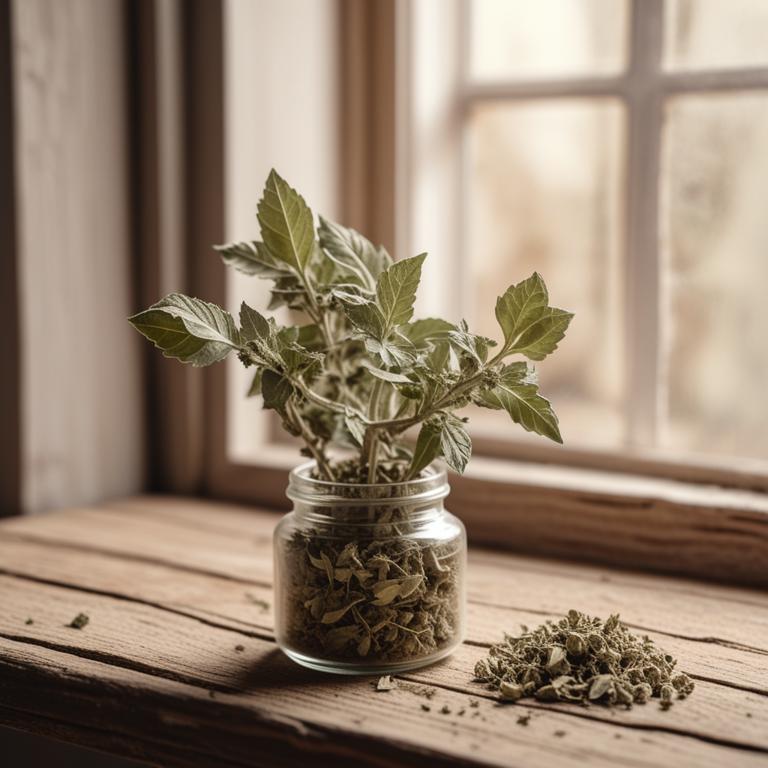
Brain Fog: A Guide to Causes, Medicinal Herbs, and Natural Preparations
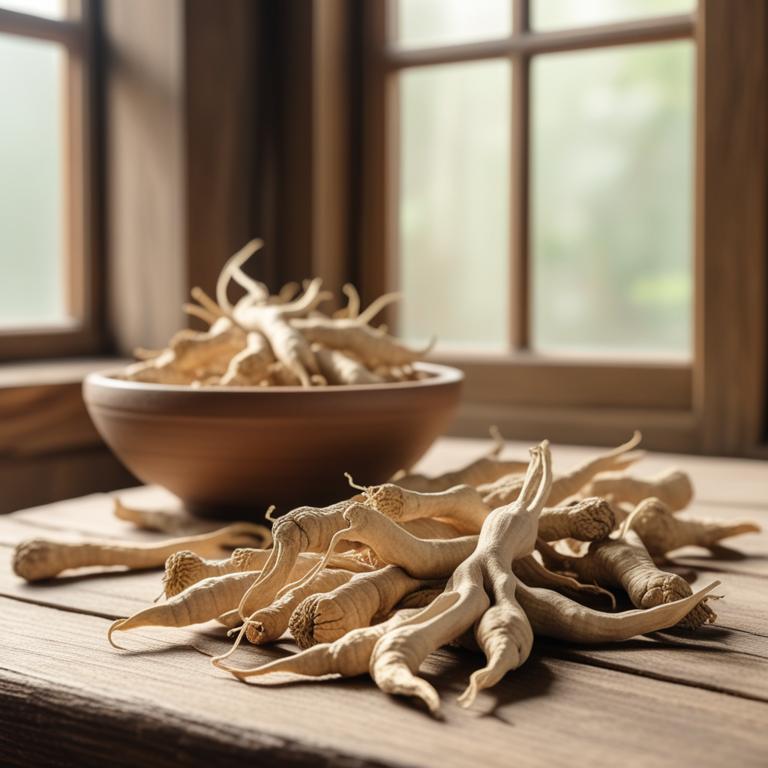
The Role of Medicinal Herbs in Neuritis Prevention and Treatment

Eye Twitching and the Power of Medicinal Herbs and Herbal Preparations
